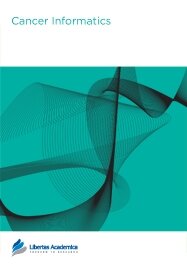

Publication Date: 23 Oct 2014
Type: Review
Journal: Cancer Informatics
Citation: Cancer Informatics 2014:Suppl. 5 61-67
doi: 10.4137/CIN.S14066

Analysis of gene sets can implicate activity in signaling pathways that is responsible for cancer initiation and progression, but is not discernible from the analysis of individual genes. Multiple methods and software packages have been developed to infer pathway activity from expression measurements for set of genes targeted by that pathway. Broadly, three major methodologies have been proposed: over-representation, enrichment, and differential variability. Both over-representation and enrichment analyses are effective techniques to infer differentially regulated pathways from gene sets with relatively consistent differentially expressed (DE) genes. Specifically, these algorithms aggregate statistics from each gene in the pathway. However, they overlook multivariate patterns related to gene interactions and variations in expression. Therefore, the analysis of differential variability of multigene expression patterns can be essential to pathway inference in cancers. The corresponding methodologies and software packages for such multivariate variability analysis of pathways are reviewed here. We also introduce a new, computationally efficient algorithm, expression variation analysis (EVA), which has been implemented along with a previously proposed algorithm, Differential Rank Conservation (DIRAC), in an open source R package, gene set regulation (GSReg). EVA inferred similar pathways as DIRAC at reduced computational costs. Moreover, EVA also inferred different dysregulated pathways than those identified by enrichment analysis.
PDF (912.05 KB PDF FORMAT)
RIS citation (ENDNOTE, REFERENCE MANAGER, PROCITE, REFWORKS)
BibTex citation (BIBDESK, LATEX)
XML
PMC HTML

This is the first time for us to submit a manuscript to Cancer Informatics. We thank the peer reviewers for their insightful comments, which have improved our manuscript markedly. We were pleased to find that the staff were extremely helpful and kept us informed of the progress of the submission step-by-step. Our experience with Cancer Informatics has been tremendous. Thank you very much!
Facebook Google+ Twitter
Pinterest Tumblr YouTube